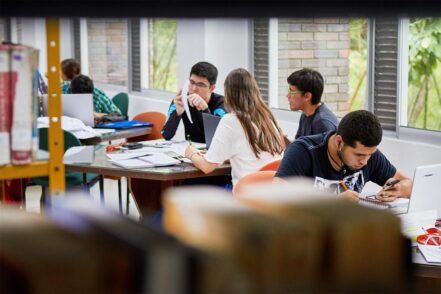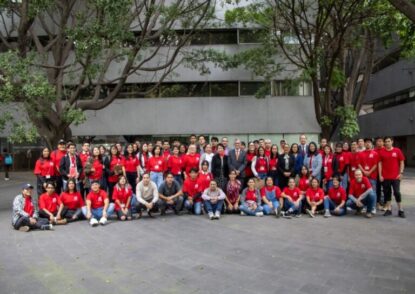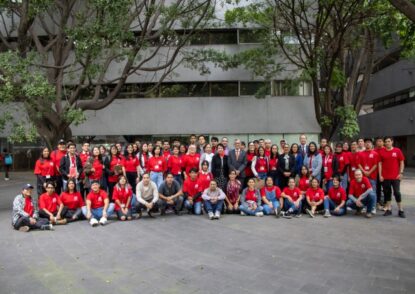
El Social Behavior and Experimental Economics Lab (Social BEE Lab) es un laboratorio de la Universidad Autónoma de Bucaramanga (UNAB), creado en colaboración con la Universidad de Nueva York en Abu Dabi (NYUAD). Este laboratorio se dedica a realizar estudios sobre el comportamiento humano y su impacto en los procesos de toma de decisiones, utilizando […]
Read More… from Laboratorio de Comportamiento Social y Economía Experimental – Social BEE Lab

This project aims to investigate gender differences in susceptibility to corruption through laboratory experiments conducted with students from two Colombian universities (i.e. UNAB and UFPS). The primary hypothesis is that women exhibit lower susceptibility to embezzlement owing to their risk aversion and pro-social values. The relative importance of these factors is not yet clear, though. […]
Read More… from Investigación sobre Género y Corrupción: Experimentos de Laboratorio en Universidades Colombianas

The project aims to ecologically rescue La Piedad Lagoon and its channels to reduce economic and health impacts, conflicts over water, biodiversity, and ecosystem services loss, and to avoid reducing family and sports recreation spaces. This Lagoon is in Cuautitlán Izcalli, in the Metropolitan Area of Mexico City (ZMCM).The project will allow the construction of […]
Read More… from UAM-EPIC Rescue of La Piedad Lagoon, Metropolitan Area of Mexico City, Mexico

The project aims to ecologically rescue La Piedad Lagoon and its channels to reduce economic and health impacts, conflicts over water, biodiversity, and ecosystem services loss, and to avoid reducing family and sports recreation spaces. This Lagoon is in Cuautitlán Izcalli, in the Metropolitan Area of Mexico City (ZMCM). The project will allow the construction […]
Read More… from UAM-EPIC Rescue of La Piedad Lagoon, Metropolitan Area of Mexico City, Mexico
The Zero-Waste towards a Sustainable Community project was created to help the community to establish waste management programme that best suit the community, trains the community on best practices of waste management toward zero waste, and increase community awareness on waste management. The Centre for Global Sustainability Studies (CGSS), Universiti Sains Malaysia (USM) has collaborated […]
Read More… from Zero-Waste towards a Sustainable Community
Sullivan County and Sullivan, IN identified a need to increase tourism to the county and incorporated city limits. Seven students in ECON351 were tasked with performing SWOT analyses of Sullivan County’s tourism industry and providing recommendations to improve tourism. Three dimensions of tourism were analyzed: Eco-Tourism, Entertainment, and Historical/Heritage. Recommendations for improving tourism centered on […]
Read More… from Sullivan County Economy Improvements with Tourism
Undergraduate economics students will use the City’s new open data portal to compare Chelsea with other cities in the state on various data points, including crime, housing, and opioid overdoses. This City of Chelsea will use this information to better understand how it’s performing in relation to peer cities on key indicators. Read the final […]
Read More… from Using Open Data to for Cross-City Comparisons on Key Metrics
This study examines the rent prices of the student housing apartment market surrounding the University of Oregon. The first key component of this study includes a Hedonic price model that helps evaluate what apartment complex amenities and characteristics are most important and influential in determining rental rates in the local community. Secondly, using the information […]
Read More… from Student Apartment Price Models for the Glenwood Riverfront Development
This project was completed as part of the 2018-2019 Resilient Communities Project (rcp.umn.edu) partnership with Ramsey County. In 2015, 12.7% of the population in Ramsey County did not have consistent access to enough food for an active and healthy life, or had limited or uncertain availability of nutritionally adequate food. At the same time, food […]
Read More… from Making Connections: Reducing Food Waste While Improving Food Security



